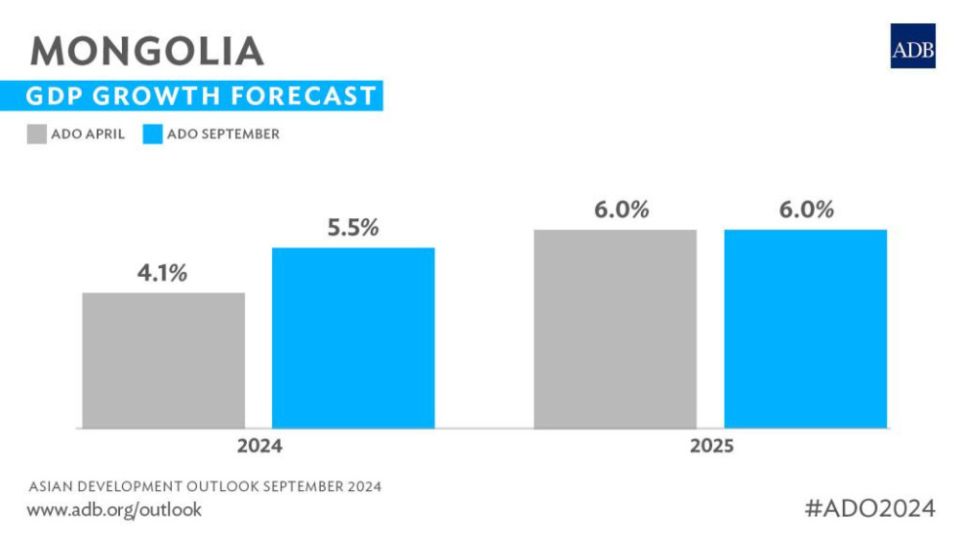October 1, 2024
ULAANBAATAR – Strong external demand, rising consumption, and government expenditure are expected to drive continued economic expansion this year, leading to a higher 2024 growth forecast for Mongolia’s gross domestic product (GDP), according to the Asian Development Bank (ADB).
In its Asian Development Outlook (ADO) September 2024, ADB forecasts Mongolia’s economic growth at 5.5% for 2024, up from the 4.1% projected in April. Growth is expected to accelerate to 6.0% in 2025, in line with earlier projections. Continued growth is expected to be driven by expansions in the services and industry sectors, including mining. A recovery in agriculture from the sharp decline experienced in the first quarter of 2024, combined with increased government spending, should also boost economic activity next year.
“The continued strong expansion in the first half of 2024 is good news for the Mongolian economy,” said ADB Country Director for Mongolia Shannon Cowlin. “It is important to use this upswing to build buffers against possible future shocks and invest wisely in the future economy to support broad-based, diversified growth.”
Mongolia’s economic growth has remained strong this year, partly driven by higher-than-expected mining output. This surge has boosted exports, with the volume of coal exports rising by 37.6% year-on-year in the first half of 2024, which has raised government revenues and stimulated growth in related service sectors, notably in the transport of goods. Additionally, increased domestic demand, supported by moderating inflation and higher public sector wages, has further sustained the country’s economic expansion.
Inflation has eased significantly from recent highs and is now within the central bank’s target range. Consumer prices are forecast to rise by 6.8% in 2024, slightly lower than April’s prediction. However, inflation is expected to rise to 7.2% in 2025, higher than previously projected, driven by strong domestic demand and increased government spending.
Risks to the outlook include potential decreases in demand from the People’s Republic of China for Mongolia’s commodity exports, delays in the expansion of output from the Oyu Tolgoi mine, and disruptions in prices and supply chains due to geopolitical tensions and climate-related shocks.
ADB is committed to achieving a prosperous, inclusive, resilient, and sustainable Asia and the Pacific, while sustaining its efforts to eradicate extreme poverty. Established in 1966, it is owned by 68 members—49 from the region.


